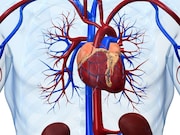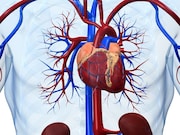Tag: Heart / Stroke-Related: Angina
Initial Invasive Strategy No Better in Stable Coronary Disease
But invasive strategy may improve angina-related status in those with coronary disease, ischemia
American College of Cardiology, March 28-30
The American College of Cardiology 69th Annual Scientific Session and Expo The annual meeting of the American College of Cardiology was held virtually...
Cognitive Decline Faster After Incident Coronary Heart Disease Event
Global cognition, verbal memory, temporal orientation scores decline faster after CHD diagnosis
Clinical Apps Up Quality of Care for Stable Ischemic Heart Disease
Tools offer clinical support for appropriate imaging, symptom assessment, patient education
IC Nicardipine Promising for Tx of Spontaneous Coronary Slow-Flow
Administration of intracoronary nicardipine results in markedly accelerated coronary filling
Allopurinol Has Little Benefit in Cardiac Syndrome X
No improvement in exercise capacity, coronary or peripheral endothelial function after six weeks
PCI Does Not Improve Exercise Time in Angina Patients
No better than placebo procedure for stable angina patients with severe stenosis
Angiography Beneficial for Management of Unstable Angina
Decreased risk of 12-month mortality for patients undergoing routine angiography
Rehospitalization After AMI Linked to Worse Health Status
Worse status for rehospitalizations for unstable angina, unplanned revascularization within first year
Depression Common in Patients With Chronic Angina
Development of depression post-diagnosis tied to increased morbidity, mortality














